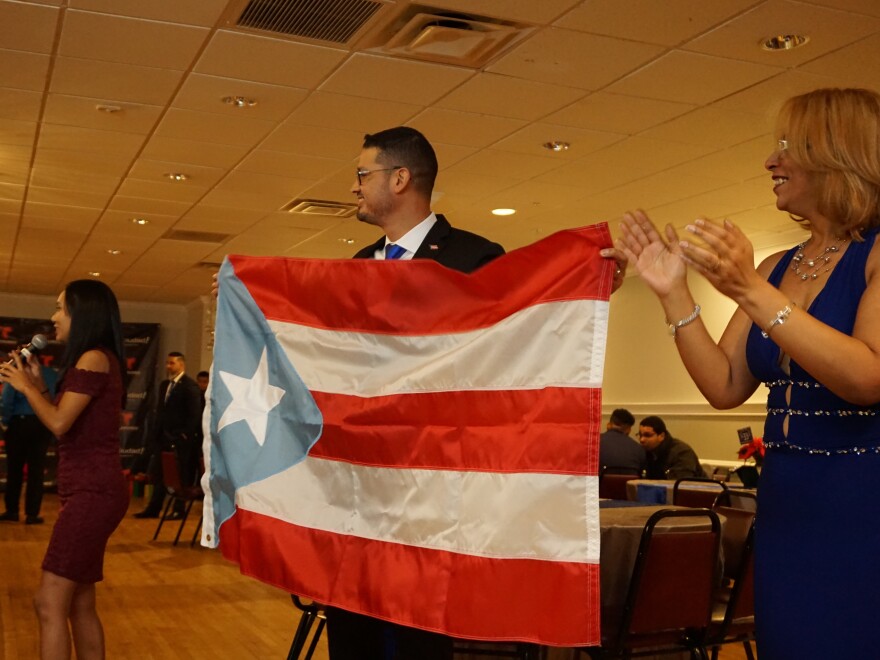For thousands of Puerto Ricans displaced by Hurricane Maria, this will be a difficult Christmas.
Miosotis Castro, her husband Francisco Alvarado and their three children lost their home when the storm hit in September. Eventually they made their way to Providence, Rhode Island, where they've been living with relatives for the last month.
It's been a hard transition, but Castro says she's trying to focus on what they do have as they prepare for the holidays.
"We cook," Castro says, sitting in her in-laws living room. "We have a Christmas tree. We have a safe home."
She, her husband and their children will spend Christmas with the few family members they have locally. They left everything behind in Puerto Rico, including a comfortable middle-class life. Since coming to Rhode Island they've been forced to rely on the support of family, strangers and relief organizations.
And now they're getting ready to celebrate Christmas far from home, where there may be snow on the ground.
"Normally Puerto Ricans spend the holidays outside, including a pork roast," she says.
Castro's 12-year old son Elias Perez pipes up, recalling outdoor parties packed with family and friends.
"It's neighbors, cousins," Perez says. "And their cousins and their cousins."
The family will try hard to recreate their island traditions and make sure there are presents for the kids. But it won't be the same in the frigid New England winter, and without so many family members they left behind in Puerto Rico.
"Christmas is the time to see family you haven't seen all year," Castro says. "And this year we won't be able to do that."
But the family has been able to connect with the network of Puerto Ricans already living in the Ocean State. Despite its small size, Rhode Island has a Puerto Rican population some 40,000 strong.

The community has embraced the more than 50 families who've moved there since the hurricane. They've helped them get social services, enroll children in school and invite them to community events, including the Puerto Rican Professional Association's annual Christmas party.
At a local community center, a live band plays traditional Puerto Rican music. Giant paintings, showing scenes of the island, stand against the walls. Trays of rice and pigeon peas, roast pork and pasteles line the tables.
"It's all about the island, the food, the desserts, the smells when you open up the food the pasteles and the morcillos, and of course the music," said event organizer Ivette Sollivan. "We hug a lot and we kiss a lot. This is Puerto Rico really."
Castro and her family dig into the food. Other party-goers greet them like old friends. Castro says coming here is helping them all with her homesickness.
"My son, my young son say, 'Mommy, all this like Puerto Rico,'" Castro says.
Copyright 2017 The Public's Radio

